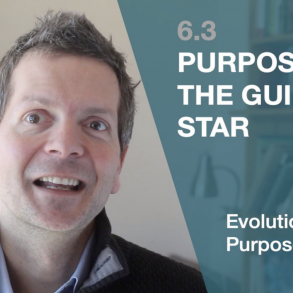By Edwin van der Geest originally published on medium.com
Earlier I wrote why we are moving towards a self-managed organisation. But we realise we are not there yet. And we love to be inspired by the best examples possible.

A couple of weeks ago I co-organised a so-called Leadership Bootcamp for current and future leaders of Incentro. Each of these bootcamps enable mental and physical growth by providing a balanced program. Theme of this edition was Self Management related to Incentro. Keynote speaker was Jos de Blok from Buurtzorg. In my opinion the best example of a self-managed organisation and a personal bucket list item to meet him. Jos de Blok was indeed inspiring and I like to share with you the six main eye-openers.
6 eye-openers Jos de Blok taught me
1. Start with the evolutionary purpose
From day one, Buurtzorg has the purpose “Helping home-based patients become healthy and autonomous”. And that is clear to everyone within the company. Even better, everyone wants to deliver the best possible healthcare, in order to meet the company’s purpose.
For incentro, our mission is: digital happiness. We believe that happy incentronauts (colleagues of incentro) deliver excellent results. A clear mission, but not yet a purpose.
2. Simplify everything
In traditional organisations, with lots of staff and things are unnecessary complex. Different departments, targets and interests. A lot to manage. Simplify your business, to make it easier to be organised within teams. For example, make your service offering easier. Make the hourly rate more equal; stop with some services so you keep the ones your best at.
Even within Incentro, where we keep our overhead at minimum, things are sometimes complex. We have a principle of cell division, if an office grows bigger than 60 employees we split up in 2 offices. We have 7 offices in the Netherlands and all of them have different service offerings.
3. The “needing” principle
“Only do things that are needed.” Sounds simple right? And it should be. It’s only as hard as you make it. With a clear purpose for the company, choosing between what is needed is pretty straight forward. But you have to force yourself to be honest to yourself and the organisation.
So in short: Every time you are in doubt, ask yourself the question: “is this really needed?”
If we are honest, within Incentro we still tend to plan a meeting because it sounds a good thing to do. But is it? We do not ask ourselves the question if it’s needed. And that is only a simple example.
4. From management to coaching
Self management and old fashioned management teams are in battle with each-other. Self organised teams are responsible for the complete process of its services/product. What management do you need? With the experience managers have, they are still very valuable. So make them coaches, and they can share their experience.
Ex-managers tend to get back in their old role as manager, just because they are used to (comfort zone). It’s up to the teams and coaches to make sure the added value is in coaching and sharing knowledge over the teams.
5. One question to rule them all!
“What can we do to make your work a success?” Freely translated from his specific question in Buurtzorg: “What can we do to enable you to provide the best possible healthcare?” Exactly the right question to empower the employees to get the best out themselves. And learn from it, to know how you can facilitate them.
Within Incentro we use Moodforce as a tool to measure our own happiness score and feedback to make it even better. This specific question is never asked. So we will add it right away.
6. Guidelines as best practices
Successful teams within Buurtzorg have a bilability of 60%, a customer satisfaction score of 90 and are great in working as a team. These best practises are based on years of experience and evolved into so-called rules of thumb. A great guideline to measure yourself as a team to know if you are on the right track.
We don’t have the years of experience as Buurtzorg and its self managed teams. But we do have experience in successful propositions, so we are able to draft the guidelines (best practices) and get the experience along the way.
Wow, so much inspiration and such a sober man is Jos de Blok. Via this route I want to thank him again.
I’m also very interested in your experience. Which of the above eye openers are you already using (or not) and why?
Republished with permission of the author
Featured Image/graphic link added by Enlivening Edge Magazine




